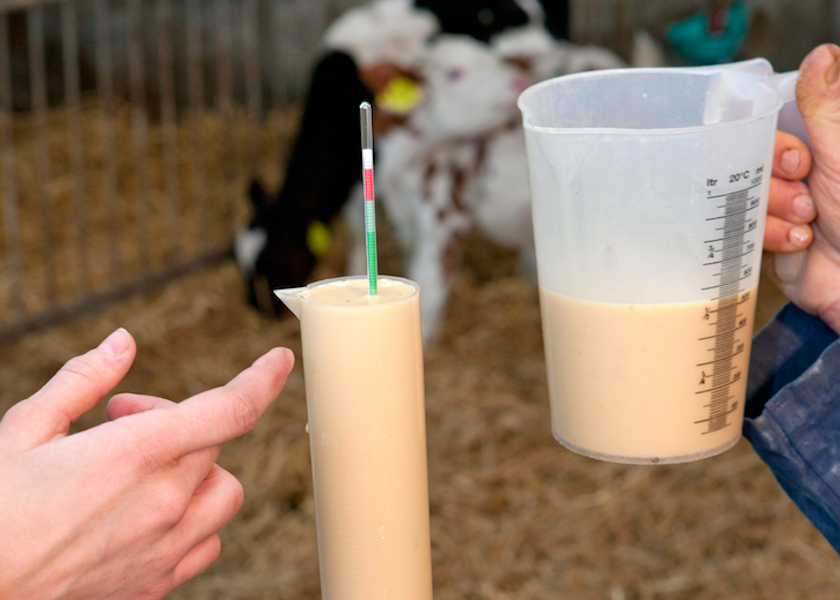Colostrum May Have Yet Another Virtue: Scours Treatment

Effectively treating calves for scours could be as easy as feeding them something that virtually every dairy farm has on hand: colostrum.
A recent research paper authored by a team of world-renown calf researchers stated there is evidence that supports the use of colostrum as an early treatment of scours in young calves. The idea is not much of a stretch, considering colostrum has been used for supplemental nutrition and treatment for diarrhea in humans for centuries.
Scours remains a considerable challenge when raising preweaned dairy calves, causing 56% of illness and 32% of deaths, with the highest incidence in the second week of life. Prior research has shown that a single case of scours costs upward of $50 per calf, and that about 5% of the affected calves do not survive.
In animals that do recover from scours, the incidence still follows them for the rest of their lives. Research studies have shown that a replacement heifer that had scours will have about 50 g/day less average daily gain; 10% lower milk production in the first lactation; and a three-fold-higher likelihood of calving after 30 months of age.
Another troubling statistic: among calves in the U.S. that suffer from scours, about 75% receive antibiotic treatment. In many cases, the causative agent is a virus or protozoa that will not respond to antibiotics. Researchers worry that animals receiving antibiotics early in life will suffer lasting alterations to their gut microbiota. Plus, there are societal concerns about the overuse of antibiotics in food animals contributing to antibiotic resistance.
Colostrum could be Mother Nature’s answer to the confounding impact of scours. Researchers already know that feeding adequate quantities of high-quality colostrum immediately after birth protects calves against scours. They also have found that, even after gut closure, feeding partial quantities of colostrum (transition milk) reduces scours incidence.
Adding dried colostrum to milk replacer also has shown to reduce the need for antibiotic treatment by over half, thanks to reduced incidence of scours, respiratory disease, and navel ill.
What they do not yet know definitively is whether colostrum could serve as an effective treatment for scours once the disease occurs. But they have strong reasons to believe it could.
Colostrum is packed with vitamins A, D, E, and B, plus high levels of essential minerals. Compared to standard cow’s milk, it has more than 100 times more disease-protecting immunoglobulins. Colostral fat is high in energy and contains essential lipids that could help calves fight disease.
What’s more, oligosaccharides in colostrum may help calm intestinal inflammation and boost the development of “good” bacteria in the digestive system. And, bovine colostrum contains hundreds of bioactive compounds, including lactoferrin, which has been shown to prevent sepsis in human infants and calves.
The next step to explore the exciting potential of colostrum would be research on the direct impact of colostrum treatment on clinical scours, and – if it is effective – how treatment protocols should be structured.
Using colostrum to treat scours would be a simple, non-antibiotic, highly affordable option. It may well be that a serious calf health and performance issue could be addressed with an exciting, practical resource that has been available to us all along.
For more on calf health, read:
- Calf Jacket Rules of Thumb
- An Easier Way to Temp Calves?
- Dairy Calves May Join the “Phase Feeding” Club Soon







